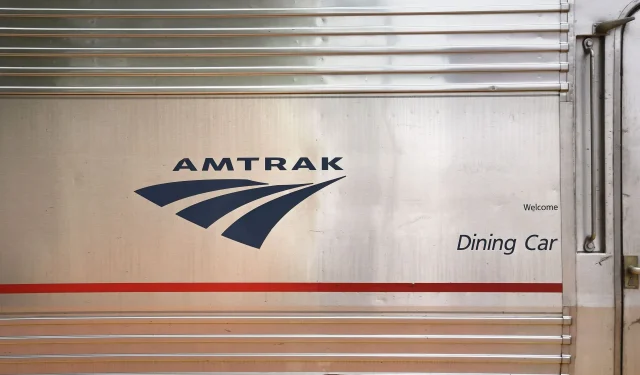On March 12, 2025, Amtrak took to social media to playfully mock Southwest Airlines’ recently implemented baggage fees, declaring itself the “only ones doing free baggage” in an X post.
This jibe came on the heels of an announcement made by Southwest Airlines on March 11, stating that it would begin charging for checked luggage on all its flights. According to a report by CNBC News, this decision stems from pressure exerted by activist investor Elliot Investment Management, which has been advocating for significant changes in the airline’s operating model since acquiring a stake in Southwest in 2024. This activism resulted in the firm securing five board seats to facilitate swift alterations.
The new baggage policy is set to take effect in three months. Under this policy, passengers who purchase tickets across all classes, excluding the top-tier fare, starting May 28, will be required to pay for checked baggage. Notably, this marks a significant shift from the airline’s long-standing tradition of allowing two free checked bags.
However, there are exceptions to this new baggage rule. Elite frequent flyers with A-List Preferred status will continue to enjoy the privilege of checking two bags for free. Additionally, a newly introduced A-List tier offers one complimentary checked bag to its members. Travel enthusiasts with a Southwest credit card will also benefit from one free checked bag.
For decades, Southwest Airlines has proudly promoted its “Two bags fly free”slogan, but the recent shift could signal a broader transformation in passenger perks across the airline industry. Although the specific amounts for checking bags remain undisclosed, competitors such as Delta Airlines currently charge $35 for the first checked bag.
Market Reactions and Industry Speculation
Following the announcement of the paid baggage policy, Southwest’s stock witnessed a notable increase of over 8%, while shares of other major airlines dropped alongside a broader market decline. This mixed market response has sparked discussions among airline executives.
“I think, clearly, there are some customers who [chose Southwest] because of that, and now those customers are up for grabs. We’ll see how that plays out over the next period of time as they continue to implement multiple changes to their products.”
Glen Hauenstein, President of Delta Airlines, highlighted that Southwest’s policy revision could create opportunities for other carriers to attract its clientele.
Scott Kirby, CEO of United Airlines, termed the policy shift as akin to “the slaying of a sacred cow,” expressing concern that the changes would disproportionately impact lower-paying customers. He stated:
“I view it as a big deal because it’s more — it feels more financially driven — a results-driven airline than it’s ever been before.”
Bob Jordan, Southwest’s CEO, acknowledged the importance of their longstanding baggage policy during a previous earnings call, noting:
“After fare and schedule, bags fly free is cited as the No. 1 issue in terms of why customers choose Southwest.”
He elaborated that the changes would support their co-branded credit card strategy, emphasizing the company’s commitment to adapting to customer preferences by monitoring booking behaviors through new channels such as metasearch platforms.
The anticipated financial impact of these changes is significant, with projections estimating an addition of $800 million to income before interest and taxes in 2025, potentially rising to $1.7 billion in 2026. Andrew Watterson, the company’s COO, remarked:
“What’s changed is that we’ve come to realize that we need more revenue to cover our costs. We think that these changes that we’re announcing today will lead to less of that share shift than would have been the case otherwise.”
In addition to the baggage fees, Southwest Airlines is also expected to implement policy changes regarding ticket flexibility and open seating arrangements.
For more insights and information about this evolving situation, refer to this article.


